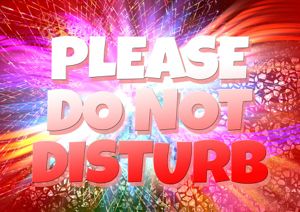It’s not always easy to get into the zone—the writing zone, that is.
Have you ever sat down to write, and then 15 or 20 minutes later realized that you hadn’t managed to type a single word?
Or maybe you did eke out a sentence or two, but it felt like pulling teeth?
This is a common occurrence for writers, and it’s caused by one thing: failing to get into the “flow” state.
You know the one—when the words flow faster than you can type them, and before you know it you’ve knocked out a complete chapter of what feels like some of your best work.
Unfortunately for many of us, these flow states don’t come often enough. Those good days of writing are often interspersed with a number of not-so-good ones where we’re fighting through every single sentence and managing just a paragraph in an hour-long slog.
Wouldn’t it be nice if there were a way to inspire ourselves into the flow state more often?
 Getting Into the Zone: What is the “Flow” State?
Getting Into the Zone: What is the “Flow” State?
Positive psychologist Mihály Csíkszentmihályi is credited with creating the concept of “flow,” which he outlined in his 1990 book, Flow: The Psychology of Optimal Experience.
He described the state of flow as the complete immersion in an activity to the point of losing track of time, and even forgetting (temporarily) the self.
When in flow, the person becomes so involved in the activity he’s doing that everything else falls away. There is strong concentration and focused attention, but also a sort of effortlessness to the task, a sense of riding along on a wave that brings an unusual and welcome sort of serenity.
When you come out of this state, typically you feel a type of elation that makes the activity itself incredibly rewarding.
Anyone can achieve a sense of flow at any time, and with a variety of activities. Some experience it when engaged in sports, others when striving to achieve in a competition. Writers know they’ve experienced it when a scene seems almost to write itself, though that makes it sound easier than it really is.
In fact, the flow state often comes about because of a strong and concerted effort, where your skills are put to the challenge, and through intense focus, you triumph.
 How Can Writers Get Into the Zone
How Can Writers Get Into the Zone
Once you’ve experienced one of those good writing days, you want to experience it again. But it’s not always so easy.
That brings up the question: Just what is required to get into flow?
According to Csíkszentmihályi, flow is more likely when you’re facing a task that has a clear goal and that requires you to come up with a specific response.
A game of basketball is a good example. The player knows exactly what the goal is and knows that he has to perform in a certain way to reach that goal.
Writing a scene presents the same sort of challenge. The writer knows she has to get her characters from one point to another, and has to create a certain mood in the scene while accurately conveying what the characters are going through.
The challenge has to be there. If the task is too easy, flow is less likely to occur.
Review a chapter checking for grammar and spelling, for example, organize files, or create social media posts, and your skills won’t be taxed enough to get you into that concentrated flow state.
If the challenge is too great, on the other hand, achieving flow is also more difficult. If you try to write a chapter about a time in history you know nothing about, it’s unlikely you’ll be able to get into any sort of flow state. The task is beyond the skills you have at that time.
Achieving flow requires you to balance the challenge with your skills, create clear goals, and give your complete concentration to the task.
 5 Ways to Increase Your Odds of Getting Into the Flow
5 Ways to Increase Your Odds of Getting Into the Flow
This basic explanation of what flow is and what’s required to get there isn’t likely to make it any easier for you to slip into that blissful place when you need to.
There are many factors working against you. You likely have to snatch your writing time out of the jaws of your busy life. When you come to the page, you often have 30 minutes or less to accomplish something.
You may have had a stressful day, so you’ve got that running through your mind, along with the tasks you have to complete after your writing session.
Still, if you can manage to slip into that flow state more quickly, imagine what you could accomplish in that measly 30 minutes! Use these tips to increase your odds of doing just that.
 Getting Into the Zone Tip 1. Focus only on the scene when writing.
Getting Into the Zone Tip 1. Focus only on the scene when writing.
Too many times, we bring baggage with us to the page. These are thoughts that interfere with the scene itself you’re trying to accomplish.
Maybe you’re still nursing your wounds over a past critique. Or you’re thinking too much about whether or not this story will be any “good.” Fear that you won’t be able to complete the story the way that you want to, or that you won’t be able to get it published, also qualify.
As long as these thoughts are going through your mind, the flow state will remain far out of reach. Instead, focus only on the scene in front of you. Your only goal is to write this scene the way it needs to be written.
If you have trouble dumping those other thoughts, take five minutes to write about them. Or try meditating on a candle flame for five minutes to calm your mind. Then approach your writing as if you’re only practicing, to make sure your inner editor doesn’t interfere.
 2. Make sure you aren’t interrupted or distracted when writing.
2. Make sure you aren’t interrupted or distracted when writing.
It takes only one text message or knock on the door to destroy your journey into flow. Make absolutely sure that every time you sit down to write, you will not be distracted.
Turn all the gadgets off, go somewhere you won’t be disturbed, and shoot for either absolute silence or instrumental music that will inspire your scene.
Getting Into the Zone Tip 3. Use all your senses when focusing on your writing.
The best scenes involve all the senses. But often when we’re writing we tend to stick to only one or two.
You can improve your writing by employing more of the senses. Include taste, sound, and touch as well as sight and smell. You can also improve your chances of getting into the flow state if you focus on all your senses as you’re writing.
I remember one of the times that I heard Andre Dubus III (House of Sand and Fog, Garden of Last Days) speak at a writing event. He suggested writers “return to the body.” Always come back to the body, he said, as that’s where a character experiences a story.
I’ve since noticed that when I remember to do this—to actually put myself as fully as possible into not only the character’s mind but his or her physical self, as well, I’m more likely to experience the flow state, because I’m more deeply entrenched in the story.
 4. Set clear goals for your writing scene.
4. Set clear goals for your writing scene.
To increase your odds of getting into that flow state, you need to have a clear goal in mind.
Sometimes when you’re writing a novel, though, you may be unsure about where you’re going. You need to write the next scene, but you don’t know where it’s going to end up.
This is particularly likely if you are a pantser, and don’t outline your stories. You can still get closer to flow, though, if you set yourself a different sort of challenge. Maybe you don’t know where your scene will end or even what will happen in the middle, but you could set a goal to reveal more about your main character, for example.
The more specific you can get, the better, so maybe your goal is to reveal one of your main character’s weaknesses, or to reveal more about his relationship to his wife.
Or perhaps in this scene, your goal is to show a redeeming side to your antagonist, or to create a unique setting that will play a large part in the story to come.
Once you have a goal like this, you can turn your concentration to that goal, even if you’re not sure where the scene will take you. That will help you drop down into that deep focus that you need to slip into the flow state.
Getting Into the Zone Tip 5. Keep learning to balance skills with writing challenge.
As noted above, the flow state is more likely when your skills and the challenge you’re facing are in balance.
If the writing you’re working on right now is too challenging for you—if you’re feeling like you just can’t make the story work like you want it to—it could be that you need to learn more about some part of the craft to make it easier.
Taking a workshop or hiring an editor may be what you need to bring your skills closer to the challenge.
If the writing you’re working on now is too easy, on the other hand (which is usually a rare occurrence!), find a way to make it more challenging. Maybe you’ve written this sort of thing many times before, so you’re getting bored. That’s your signal to up your challenge a bit. Find a way to make the task harder. Can you make it funnier? More dramatic? More fast-paced?
When you increase the challenge, you increase your interest in the project, too, such that when you work on it again, you’ll have a better chance of achieving flow.
How do you increase your odds of achieving the flow state when you write?
Sources
Cherry, K. (2011, February 24). A Biography of Positive Psychologist Mihaly Csikszentmihalyi. Retrieved from https://www.verywellmind.com/mihaly-csikszentmihalyi-biography-2795517
Cherry, K. (2011, March 2). Achieve the ‘Flow’ Mindset to Get the Job Done. Retrieved from https://www.verywellmind.com/what-is-flow-2794768




Great ideas, Colleen, thank you! For me, when I feel some kind of fire in the belly, an energy swirling around, I know the flow is near. I sit down at the computer as soon as possible and read my last scene. As I come to the end of that scene, where I had previously left off writing, I find myself in flow and being propelled forward in my mind, by my emotions. The writing just begins as I watch and listen to my characters, wondering what they will do now, or say now. And the words are all there, in the flow, and I have to type fast to catch them, totally focused on being in the scene, and yes, flowing! Or should I say flying?
Excellent post! I’ve found that my flow plays hide and seek with me when I need to know more about my character, i.e., why doesn’t this event impact her as strongly as it should? When I delve more deeply into her past, I usually find my answer and then the valve opens and my flow comes pouring out.
Yes, that’s it exactly, “hide and seek.” Great way to put it! Thanks for the tip, Karen. :O)
I need to experience this “zone” and experience the flow of words that can bring me into the character’s mind. I’m doing my 2nd draft and find some of the scenes are not working like I want. The rewriting gives me the opportunity to explore what my main character experiences in her emotions and outward expressions. I’m a slow learner and keep writing my opinion into the story and ignoring my character’s inward challenges. Fortunately I have a group of writers to critique my chapters and give me valuable input about how to portray my character. I am a beginning writer and need all the help I can. Your article gave me clear information on how to keep from becoming discouraged and “blocked.”
Hi, Kathy. We’re all learning always, so you’re definitely not alone. I find the more I can imagine myself in the character’s physical self in a scene the more likely flow is to occur. What is she smelling, tasting, feeling at that moment? Is it hot or cold, is she comfortable or is something hurting or poking, what is she seeing around her? What does the atmosphere feel like? The more you can drop into the physical, the more the state of mind becomes clear, too. Acting classes can also be helpful! Good luck and keep writing!
Putting myself into the character’s mind is the key. It’s the best way for me to get in the flow. Lately I’ve been too scattered with non-writing tasks, appointments, and meetings. It’s time for one of my three-day at-home retreats. I’m aiming for this Saturday/Sunday/Monday.
Ooo, at-home retreat. Sounds like a good idea!